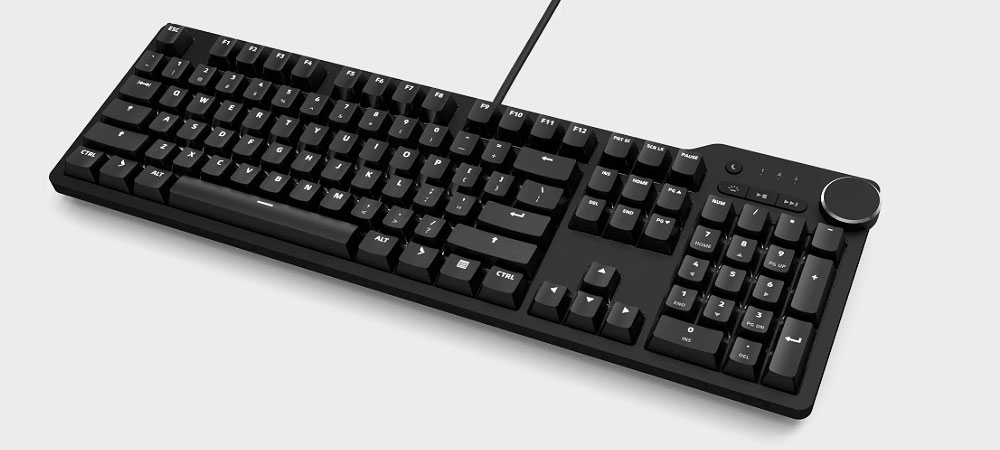Generative AI is a category of artificial intelligence that uses algorithms to create things like literature, graphics, music, and language models.
Gen-AI has been burning up the news of late and promises to change computing. ChatGPT is the current star of this category, but Google is spinning up a challenger because ChatGPT has scared the heck out of them. They are hardly alone.
While there is a lot of concern about this technology taking jobs away from humans, the kinds of jobs it will mostly eliminate, at least initially, are jobs that people often don’t like doing.
In addition, this is part of the anticipated evolution of computers from glorified calculators to something like working peers, and it changes critical dynamics. Rather than people having to learn how to work with computers, generative AI-based computers will increasingly be learning how to work with humans.
Related: Gmail Creator Predicts AI Will Totally Disrupt Google Search in 1 to 2 Years
Until that evolution reaches critical mass, when computers can fully perform as peers to humans — likely as they rush past us in development, given machine speeds exceed evolution by thousands of magnitudes — we’ll need AI whisperer skills. This is much like today’s need for people who know how to best work with computers or learn Boolean logic to work more efficiently with search engines.
Let’s talk about that evolution this week. Then we’ll close with my Product of the Week, a new mechanical keyboard I tried out that needs just one more thing to be perfect.
Linking Gen-AI to Humans
Traditionally, a “whisperer” refers to someone who knows how best to work and communicate with an animal. They are savants who seem able to get into the heads of the animals they work with and train animals that seem untrainable.
They use verbal and non-verbal methods that seem like magic to those watching them and form a bond of trust with the animals that seemed impossible to the owners, and the whisperer can transfer that bond to the owners at the end of the process.
True whisperers seem to come by their skills naturally. They are wired differently than the rest of us, and much like savants in other areas, I expect they often don’t relate to people that well.
Unlike animals with abuse, health, or mental issues that generate fear of humans, generative AIs will be relatively stable, though they will vary greatly depending on their programming.
However, understanding how to direct them to the desired outcome will be no less difficult because, unlike animals, we’ll ask the AIs to complete far more complex tasks than sitting, staying, or coming to us on command. We’ll ask AIs to write scripts, articles, and novels, create new products and execute military commands.
We also know that generative AIs currently lack empathy, though there are those working to not only fix this but to use them to teach humans how to be empathetic. As those who have worked in IT already know, the big problem today with generative AI is that users don’t know what they want, so they can’t very well issue a request that a generative AI can effectively execute.
AI whisperers will be the bridge between the generative AI and the human user. The whisperer understands what the AI needs to hear and can better translate what they want into a command that more efficiently directs the AI to accomplish the task. Scale will immediately become a problem since, like animal whisperers, AI whisperers will initially be scarce and difficult to identify.
AI-Based Human Whisperers
Much like we have created generative AI and trained it on materials to accomplish an increasing variety of tasks, the bottleneck is that people just aren’t great communicators. Since generative AIs can advance at machine speeds and will gain consistency over time, it is the human side of this problem that will need more work.
The final stage of the development of generative AIs will be the creation of AI-based human whisperers. These AIs are explicitly trained to learn what humans want. Their unique methods of communicating, both verbally and non-verbally, can motivate or manipulate humans to accomplish the needed task of thoroughly thinking through their requests — often by providing simulation feedback and historical perspective to avoid the mistakes that otherwise would occur — to speed up and increase the quality of the overall process.
Given they can be trained through digital knowledge transfer, these human-whisperer AIs can scale and will be able to complete the bridge between people and machines, finally providing a look at the full potential for genuine human-AI synergy.
Wrapping Up
Generative AI is a game changer that will help eliminate repetitive tasks and even much of the grind when having to write a long paper, article, or book.
It will perform best as a human enhancement tool rather than a human replacement tool because its creativity is derivative and lacks empathy, which means that it will do a lot of socially unacceptable things on purpose without oversight.
Those who do best with this technology initially will embrace and learn it, much like those who previously embraced and learned mainframes, PCs, and Boolean logic.
We should see AI whisperers initially emerge as a bridge between these AIs and people who have yet to learn how to think through and properly word their requests.
Eventually, they will be replaced by AI-driven human whisperers, allowing the technology to advance more quickly and deal with related communications problems at scale.
Computers are about to become a ton more social; we are not at all ready for this yet.

Das Keyboard 6 Professional

Image Credit: Das Keyboard
If you write a lot, as I do, there is nothing like a great keyboard. To me, a mechanical keyboard is far better than the cheaper, chicklet-style keyboards on most laptops and desktop PCs.
I like a longer key throw, a solid touch, and the fact that mechanical keyboards last longer than their cheaply-made counterparts.
The Das Keyboard 6 Professional is more appropriate for writers and computer programmers than gamers. Still, it would make a decent gaming keyboard, given it is mechanically ergonomic, and you can control the volume of your PC with a convenient volume nob on the device. However, there are better boards for gaming that look more spectacular.
This keyboard is for the office, home, or work. It has lighted keys (with an on-off switch) which is handy if you work at night, as well as all media controls.
Many of us like to listen to music or podcasts while working, and the ability to manage that content with dedicated keys is quite helpful. You can also push down on the volume control to mute the speaker, but one feature is lacking: a mute microphone button for video calls, which those of us who work from home need sorely.
The Das Keyboard 6 Pro does have a handy sleep button which, if you don’t have user sensing (a feature that suspends your PC when you walk away from it), is a great way to assure your kids or co-workers don’t mess with your stuff if you leave your desk.
I found the keys to be a bit sticky at first, but that cleared up in the first 15 minutes, and this is now the keyboard I use for most of my work. I just wish it had a microphone mute button.
It comes in two versions: one with softer switches and the one I got that is a bit more clicky. I like the clicky version, but if you are in an office, your co-workers may prefer you make the quieter choice.
A great keyboard helps productivity, reduces mistakes and hand stress, and creates a more pleasant working experience. Accordingly, the Das Keyboard 6 Professional, which sells for $199, is my Product of the Week.

























































